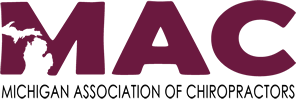Complete Story
06/01/2022
New Auto Insurance Premiums Research: Discriminatory Pricing Resulting in Consumers Paying More for Less Coverage
As Michiganders Struggle with Inflation, National Independent Researcher Warns That New Auto Insurance Rate Increases Are Coming
Click here for a deep-dive update on this research.
New statewide research by a national insurance expert has found that consumers who purchase reduced coverage levels actually pay more than those who purchase full benefits – with more increases to come. These revelations come nearly two years after the passage of Michigan’s auto reform law, which was touted as a way to end discrimination against drivers.
The research – conducted by Doug Heller, who is director of insurance for the Washington, DC-based Consumer Federation of America and also serves an appointee of the U.S. Department of Treasury’s Federal Advisory Committee on Insurance – found that Michigan’s annual statewide average cost of unlimited Personal Injury Protection insurance is $478, while the average annual cost for just $50,000 in PIP benefits is $591. Heller’s research represents the most recent data collected from 54 insurance companies representing 99.2% of the auto insurance market in Michigan.
“The 2019 reforms did not address the persistent problem in Michigan that left the most financially vulnerable residents to face unaffordable premiums,” said Heller, who conducted the research on behalf of CPAN, the consumer protection organization fighting for fair insurance laws. “They promised a better deal, but they just created a new way for insurers to discriminate.”
“This research shows that for many drivers, especially in Detroit, the new auto no-fault system leaves safe-driving, low-income residents getting less coverage but paying higher prices than wealthier drivers around the state who can afford to stick with the higher quality unlimited coverage that drivers prefer,” he said. “What we are seeing here is due to persistent price discrimination and weak oversight from the Department of Insurance and Financial Services.”
Heller found that:
- Auto-Owners Insurance policyholders pay on average $135 more for $50,000 in PIP than unlimited.
- For Citizens Insurance, it’s $96.
- For Farm Bureau, it’s $223.
- For MemberSelect (AAA), it’s $159.
- For Progressive, it’s $337.
- For Meemic, it’s $530.
- For Allstate, it’s $101.
Meanwhile, consumers can expect to continue to feel the squeeze. Despite pronouncements from state leaders and insurance company executives that auto insurance reform has reduced premiums, the latest report from Insure.com found that Michigan still had the highest rates in the nation, while Heller’s research has found that insurance companies have restarted the practice of penalizing drivers for not previously having coverage.
Rates are about to go up even more. Heller found that most major carriers in Michigan have rate hikes either approved or currently under review, including:
- Allstate +12% (approved, effective March 2022)
- Auto Club +9% (approved, effective 7/1/22)
- Meemic +5.1% (approved, effective 7/1/22)
- Farm Bureau of Michigan +3% (approved, effective 6/1/22)
- Safeco +11.4% (approved, effective May 28, 2022)
- State Farm +.3% (approved, effective 5/16/22); +4.1% (under review, proposed effective 9/9/22)
- Citizens +1.1% (approved, effective 1/1/22); +0.7% (under review, proposed effective 7/1/22)
- Michigan Insurance Company +9% (under review, proposed effective 7/1/22)
As consumers continue to feel pain in the pocketbook, the 45% cut in catastrophic care passed as part of auto insurance reform has proved to be devastating – and in some cases, deadly – for survivors of serious vehicle crashes.
State Sen. Stephanie Chang and State Rep. Julie Rogers are spearheading efforts in their respective chambers to help victims of catastrophic car accidents and address concerns related to transparency and accountability in Michigan’s auto no-fault law.
“As a practicing physical therapist, I know firsthand how important regular rehabilitative care is for catastrophic crash victims – without it, these individuals cannot thrive, and many simply won’t survive,” said Rogers. “The crisis in care caused by this new law has gone on far too long, and the human devastation has been unacceptable. We need to pass these bipartisan bills now.”
Added Sen. Chang: “A catastrophic car crash can happen to anyone. These survivors and their families have already suffered life-changing tragedies; now, they struggle to get the care they need and were promised. Crash survivors deserve to live dignified and meaningful lives – for months, they’ve come to the Capitol and asked for our help. We need to stand up for them and ensure their needs are met.”
According to a recent report from the nonprofit health organization MPHI, as of October 20, 2021, 1,548 no-fault patients have been discharged by their previous providers and 3,049 Michigan jobs have been eliminated since the 45% cut went into effect in July 2021. Meanwhile, 140 organizations reported having to significantly reduce services, 96 organizations can’t accept new patients with no-fault insurance funding, and 21 organizations have had to cease operating completely, devastating Michigan’s system of post-acute care and overburdening a health care system already strained due to the pandemic and staffing shortages.
“Auto no-fault reform is a complete disaster,” said Devin Hutchings, president of CPAN. “It should be clear by now that auto insurance companies completely hoodwinked state leaders. Consumers wanted relief from sky-high premiums—instead, they’re paying more and getting less coverage. Crash survivors are suffering and dying. Legislators needed to admit their mistakes and fix this mess immediately.”
The MAC is a founding and Executive Committee member of CPAN, a broad, bi-partisan, Michigan-based coalition, whose mission is to be the consumer advocate for auto insurance policyholders, those who have been injured in a motor vehicle crash and the medical providers caring for them, representing them at the Capitol, in the courts, and in the public forum. For more information, please visit www.CPAN.us.
Source: CPAN Press Release, “New research on Michigan auto insurance premiums reveals discriminatory pricing is resulting in consumers paying more for less coverage,” May 18, 2022
Michigan Court: New Auto No-Fault Fee Schedule Cannot Be Retroactively Applied
Huge Fee Decrease Cannot Be Applied to Patients Who Purchased No-Fault Policies and Sustained Injury Prior To the New Auto No-Fault Law
On Friday, May 13, 2022, Clinton County Circuit Court Judge Shannon Schlegel issued an important decision in Kuhlgert (Ostendorf) v State Farm (Court Case No. 21-12102-NF), regarding the retroactive applicability of the recently enacted legislative changes to Michigan’s Auto No-Fault Insurance Law. Specifically, in a ruling from the bench, Judge Schlegel held that the new fee schedule limitations contained in MCL 500.3157(7), enacted in 2019, cannot be retroactively applied to patients who purchased auto no-fault insurance policies and sustained injury prior to the effective date of the new provisions. Therefore, insurance companies cannot enforce these new fee schedule provisions to limit the level of reimbursements to medical providers who render services after July 1, 2021, to such previously injured patients.
In so ruling, Judge Schlegel held that the no-fault insurance policies purchased by such patients required the payment of “all reasonable charges” for reasonably necessary products, services, and accommodations for an injured person’s care, recovery, or rehabilitation, and insurers had the duty to pay those benefits without regard to any government “fee schedules.” Accordingly, the Court held that any effort to apply the new fee schedules to such patients injured prior to the new law would constitute an illegal attempt to retroactively enforce benefit reductions because the contractual right of those patients had “legally vested” as of the date of their injury.
In reaching its decision, the Court relied on the recent decision of the Michigan Supreme Court in the case of Buhl v City of Oak Park, 507 Mich 236 (2021), which case sets forth four (4) factors that should be utilized to determine when legislation can be retroactively applied. Judge Schlegel ruled that all those factors established that retroactive application of the new benefit cuts was not proper.
Judge Schlegel is the fifth Michigan Circuit Judge to reach the conclusion that the benefit limitations set forth in the new 2019 no-fault law cannot be retroactively enforced as to patients who purchased auto insurance policies and were injured prior to the effective date of the new legislation. The other judges so ruling in these earlier cases were: Genesee County Circuit Court Judge F. Kay Behm in the case of Melrose v Nationwide Mutual Ins Co, Case No. 19-113455-NF; Kent County Circuit Court Judge Mark A. Trusock in the case of Advisacare Healthcare Solutions, Inc v Progressive Marathon Ins Co, Case No. 21-1118-NF; Calhoun County Circuit Judge Sarah S. Lincoln in the case of Thomason v Allstate Ins Co, Case No. 2011-281-NF; and Washtenaw County Circuit Court Judge Archie C. Brown in the case of Gedda v State Farm Mutual Automobile Ins Co, Case No. 22-152-NF.
The issue will soon be presented to the Michigan Court of Appeals on June 7, 2022, in the pending case of Andary et al v USAA Casualty Ins Co et al, Court of Appeals Case No. 356487. Stay tuned!
Source: CPAN Press Release, “CPAN issues information related to important decision regarding the retroactive applicability of the recently enacted legislative changes to Michigan’s Auto No-Fault Insurance Law,” May 17, 2022


